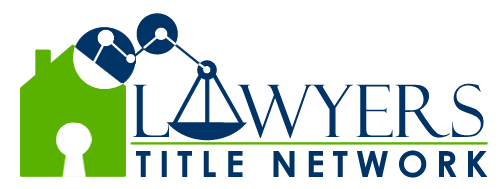- Have any questions?
- (407) 459-1430
- [email protected]
The first thing to consider when buying a house in Florida right now is are there even any closing happening? Aren't we under a lockdown? Yes we are under a lockdown, but home closings and title services are considered an essential work.
Yes, real estate closing transactions are under these new and unusual circumstances. However, please be aware that some things may take longer than normal. In some cases an additional 2 weeks for mortgage approvals, and in other cases inspections, surveys, etc. are taking longer to schedule. As of January 1st, 2020 the state of Florida recognizes Remote Online Notary Public protocol. The state of Florida has even created a coronavirus contract addendum to be used for this very purpose. Just like real estate brokerages, title companies are also considered essential services in Florida. Most title company offices are open for the purpose of closing our real estate transactions and are handling their closings remotely and electronically. Most all real estate agents and brokers, mortgage brokers and closing agents are available through all means necessary to communicate with you and get your transaction successfully closed.
Because of coronavirus these delays in Florida Real Estate can spread throughout the parts of the real estate closing process. Whatever you can do to streamline underwriting for your mortgage loan will be helpful; make sure you have all your documentation together and are careful not to open any new lines of credit while you’re trying to buy. It may be more difficult to secure a mortgage loan right now due to economic confusion, and that might mean additional stress for you to prove that you have the funds and the financial ability to buy. Be prepared to take those steps so the sale isn’t delayed more than necessary. Be patient and flexible with your agent and with sellers, who may have to follow certain guidelines, such as only allowing one buyer inside a house at a time (in which case your spouse may have to wait in the car). Talk to your agent about whether and how to have the home deep-cleaned before you move in if you are concerned about COVID-19 infection. And understand that appraisal and inspection delays will likely lead to a longer closing timeline than you had hoped.
„Eventually you will have your closing and life will move on”
Florida is the pinnacle of residential real estate buying and selling. Year round opportunity for outdoor activities, clean air and lower crime attract more people each year. Many that are here buy, sell and buy again and others are investors. Many of these people have no idea what documents they are signing because those closing their real estate transaction do not take the time to explain it to them. We hope to try to fill in the blanks.
A Purchase and Sale Agreement or contract starts the closing process. An enforceable contract for purchase and sale of real estate must be in writing, under what is known as the statute of frauds. Oral contracts for purchase and sale of real property are not enforceable.
Perhaps the best known closing document is the deed. The deed conveys ownership. A Warranty Deed is the most common form of deed used in residential transactions.
A Warranty Deed provides warranties of title. Those warranties are (1) covenant of seisin (the grantor owns the property and is able to transfer it), (2) covenant against encumbrances (property is not subject to any liens or mortgages that have not been disclosed to the grantee), (3) covenant of further assurances (the grantor will take action in the future necessary to protect good title) and (4) covenant of quiet enjoyment (the grantor will defend any claims against the property from the beginning of time).
The second most common form of deed in residential closings is a Special Warranty Deed. A Special Warranty Deed is really not so special, as it does not contain all of the covenants of a general warranty deed. Special Warranty Deed limits the warrants to claims by all persons claiming by, through and under the grantor, but no others. Special Warranty Deeds are frequently used by developers to limit liability for title problems. Variants of the Special Warranty Deed are also used by fiduciaries, such as trustees and personal representatives, who are only willing to warrant that they have not caused or allowed any title problems during the time they held title in their fiduciary capacity.
Quit Claim Deed is another commonly used deed in Florida. It is not often used in closing a residential transaction, because it contains no warranties. It is most often used to cure title defects. A Quit Claim Deed does not warrant that the grantor has any ownership at all but only that the grantor conveys any ownership which the grantor might have. Since a Quit Claim Deed has no warranties, it will not form the basis for a grantee to make a claim for defect or title problems against the grantor.
Almost everyone buying real estate purchases title insurance to protect their interest. A title insurance policy indemnifies the owner against financial loss from title defects, based on something that occurred prior to effective date of the policy. The effective date of the policy is generally the date and time that the deed was recorded. Title insurance does not guarantee that there are no defects in title but insures that the title is marketable. The title insurance underwriter will take action to minimize loss to the insured. Title insurance is offered by insurance companies with agents who are either Florida attorneys or title companies.
Florida title insurance policies insure that title is marketable, which means that title is reasonably free of problems or defects that would be unacceptable to a reasonable person. Prior to issuance of a title insurance policy a thorough search and examination of the title is undertaken. That involves review of documents recorded in the Public Records to make sure there are no defects in previous deeds, liens or other problems. If a problem appears after the title policy is issued, the title insurance underwriter will usually attempt cure the problem. If the problem is particularly significant, the title insurer may pay the policy limits to the insured and be relieved of its obligation to cure the title defect.
There is almost always a gap in time between the last title search and recordation of the deed from closing. That gap exposes the buyer to risk of claims being filed against the seller or the property between the latest title search and recording of the deed. By statute, Florida requires title insurance underwriters insure against the possible existence of adverse matters or defects in title between the effective date of any title commitment and the date of recording the deed. This is known as insuring the gap. Gap insurance protects the buyer only when the buyer purchases a title insurance policy at time of purchasing the property.
To insure the gap, title insurance underwriters require that sellers provide a sworn statement knows as a Gap Affidavit, to the buyer’s attorney at closing. The Gap Affidavit is also known as an affidavit of no liens.
An affidavit of no liens or Gap Affidavit is a sworn statement from the owner that there are no unpaid contractors that could file construction liens, that the owner is in exclusive possession of the property, and that the owner is unaware of any claims which could be made against the property.
Many properties are within an association with obligation to pay assessments. Property is also subject to other liens or potential liens including mortgages, code violations and even judgments. As part of the closing, the buyer’s attorney will confirm status of association assessments, liens, property taxes and mortgage payoff through what is known as an estoppel letter. An estoppel letter is obtained from the person or entity with a financial claim stating the amount that is due. It is called an estoppel because the person or entity providing the statement must release any lien claim against the property upon receipt of the amount due as stated in the letter even, if the amount due is incorrect. Estoppel letters are an important protection for buyers.
When a real estate sale includes furnishings or other personal property, the personal property is transferred to the buyer through a Bill of Sale. The Bill of Sale can include warranties of title like a deed, but is limited to personal property.
Many transactions include an assignment. An assignment generally transfers contract rights and is used when the property is rented and so the seller can assign the lease to the buyer. In some cases, the purchase and sale contract for the real property itself is assigned. An assignment may also be utilized to assign rights to a particular boat slip, parking space, storage locker or other amenity.
If the buyer is financing the purchase, there will be financing related documents too numerous to list. Primary documents will include a promissory note, which is the promise by the buyer to repay the loan. A mortgage grants the lender a security interest in the real property, which is a lien to secure repayment of the loan. A mortgage is given by the buyer to the bank. The bank, in exchange, provides money for closing.
Last but not least is the Settlement Statement. Settlement Statement is a compilation of the financials involved in the transaction including credits, prorations, expenses and adjustments between the parties. When a federally insured loan is involved, the Settlement Statement must be in form and content required by federal law and is known as a Closing Disclosure. The Settlement Statement or Closing Disclosure provides each party details of the financial aspects of the transaction.
There are a myriad of other documents that can be involved in a residential closing, but the documents discussed here are those most commonly seen in Florida. Documents may not be titled exactly as spoken about here, but should be recognizable by their content.





